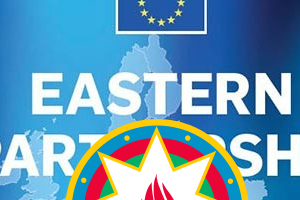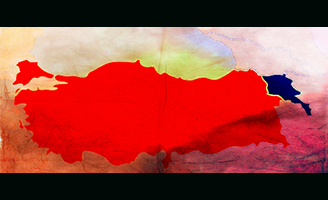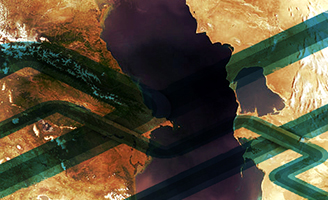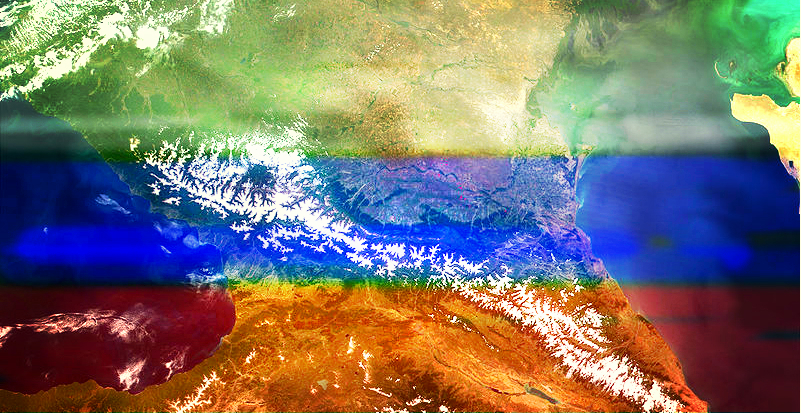Armenia and Iran Hold Political Consultations
By Erik Davtyan (06/24/2015 issue of the CACI Analyst)
In June 2015, Armenia and Iran held numerous talks on political and economic cooperation, energy security, and the Nagorno-Karabakh peace process. On June 10, Armenia’s ambassador to Iran, Artashes Tumanyan, met with Alaeddin Boroujerdi, the chairman of the Committee for Foreign Policy and National Security of Iran’s Islamic Consultative Assembly (parliament). Boroujerdi welcomed the fact that Armenia and Iran pursue a high-level political dialogue and successfully cooperate at the level of parliaments, emphasizing the unique role of the Armenian Diaspora in Iran’s development. In turn, Ambassador Tumanyan stressed the importance of deepening political dialogue and economic exchange and expressed his gratitude to Iranian authorities for the warm attitude towards Iranian Armenians and the preservation of Armenian cultural heritage in Iran. Touching upon the current turmoil in the Middle East and security issues, the Armenian ambassador stated that all regional issues should be solved only by political means and that Armenia runs a constructive and balanced policy in this context.
The official political dialogue between the two neighboring states continued in the following days in Yerevan. On June 11, the President of Armenia’s National Assembly Galust Sahakyan received the head of the Friendship Group Armenia-Iran Ali Qaidi and other members of the group. The parties discussed the Nagorno-Karabakh peace process, as well as issues related to Armenia’s accession to the Eurasian Economic Union (EEU), parliamentary cooperation and especially the activity of the Friendship Group. On June 12, Iranian members of the Friendship Group were received by Armenia’s Minister of Foreign Affairs Edward Nalbandian. Nalbandian stressed the importance of political dialogue at both the executive and legislative levels and emphasized that several Armenians are engaged in Iranian parliamentary affairs as deputies in the Islamic Consultative Assembly.
Simultaneously, on June 11-12 Armenian officials held separate consultations with another Iranian delegation. The consultations were headed by the Deputy Ministers of Foreign Affairs Shavarsh Kocharyan and Ibrahim Rahimpour. According to the press release of Armenia’s Ministry of Foreign Affairs, the activation of political dialogue and enhancing cooperation in energy, trade-economic, and humanitarian fields bilaterally as well as in the framework of international organizations were on the agenda of the consultations. The counterparts also discussed the realization of joint economic projects in detail. Along with issues of common concern, the interlocutors reciprocally presented the current developments on top priority issues in Armenia’s and Iran’s foreign policies. Kocharyan presented the efforts of Armenia and the OSCE Minsk Group Co-Chairs towards the settlement of the Nagorno-Karabakh issue. In turn, Rahimpour briefed on the recent developments in the negotiation process on Iran’s nuclear program. On June 14, Ambassador Tumanyan met with Iran’s Minister of Petroleum Bijan Namdar Zangeneh and discussed issues relating to bilateral economic and energy cooperation.
Despite the active and regular interaction between Armenian and Iranian authorities, it is obvious that the vague perspective of constructing a new railway is still the most important problem on the two states’ official mutual agenda. By connecting its railway network to Iran’s, Armenia seeks to circumvent the dual embargo by Turkey and Azerbaijan (imposed more than 20 years ago) and receive the status of a transit state, thereby raising its international importance. For Iran, the new railway will open new opportunities for linking the Persian Gulf through Iran to the Black Sea basin. According to News.am, Tumanyan declared that Iranian authorities will build 60 kilometers of the railway, reaching the Armenian-Iranian state border. Regarding the existing difficulties for this infrastructural program, the Armenian ambassador explained that the construction of an Iran-Armenia railway needs a colossal investment, hence “the railway will be constructed as soon as financial needs are satisfied.”
Tumanyan also said that “Armenia aims at linking Iran and the Eurasian Economic Union” and added that “the members of the EEU are also interested in a broader cooperation with Iran”. In August 2014, the Armenian government approved the railway project at a cost of approximately US$ 3.5billion. Armenia has to build a nearly 300 kilometer-long section of the railway, the construction of which is estimated to be completed in 2022.
Azerbaijan and the EU
By Natalia Konarzewska (06/24/2015 issue of the CACI Analyst)
Azerbaijan’s president Ilham Aliyev made a last-minute decision not to attend the European Union’s May 21–22 Eastern Partnership (EaP) summit in Riga, citing the need to focus on the upcoming European Olympic Games, which were about to start in Baku. However, high-ranking officials quoted in the media asserted that president Aliyev did not attend the summit due to Western criticism towards Azerbaijan. Baku also expressed dissatisfaction with the summit’s results as Azerbaijan hoped to receive more vocal Western support for the resolution of the Nagorno-Karabakh conflict. Instead, attention was focused on human rights violations in Azerbaijan. Azerbaijan’s relationship with the EU is becoming increasingly strained and displays growing disappointment from both sides.

Turkey-Armenia Relations after Turkey’s Elections
By Armen Grigoryan (05/27/2015 issue of the CACI Analyst)
The outcome of Turkey’s recent parliamentary elections may partly reduce tensions in relations with Armenia, stopping the mounting hostile rhetoric of recent months. A normalization of bilateral relations should not be expected at this stage, but the trend of increasing cooperation in the humanitarian area, and in culture, tourism, and the media in recent years will likely continue. At the same time, some policies may need to be reassessed in consideration of regional security risks, including the growing level of militarization in the South Caucasus, increased tensions on the line of contact in Nagorno-Karabakh in the absence of progress in the negotiation process, as well as Russia’s capacity for manipulating the regional conflicts.

The Southern Energy Corridor: A Strategic Priority for the U.S.?
By Mamuka Tsereteli (05/27/2015 issue of the CACI Analyst)
The South Caucasus enjoyed significant political support from U.S. policy makers since the mid-1990s, when the region was seen as an integral part of the proactive U.S. security and energy policy towards Europe. Those policies were successful, resulting in several pipeline projects connecting Caspian resources to European and world markets. But a direct natural gas connection between Caspian fields and Europe remains to be developed. It is in the common interest of the U.S., EU, producer and transit countries to overcome multiple challenges and make this connection work. While the debate currently includes efforts to build a false connection between Caspian producers and exemptions from the Iran sanctions, Washington needs a serious and strategic discussion on America’s role in Caspian energy.

Moscow CFE Kill Threatens Caucasus Stability
By Richard Weitz (04/29/2015 issue of the CACI Analyst)
On March 10, Russia effectively ended its participation in the Treaty of Conventional Armed Forces in Europe by withdrawing from its Joint Consultative Group. This move, encouraged by the inadequate Western response to earlier Russian violations to the treaty, has given Moscow a freer hand to develop and apply its military power in Eurasia and elsewhere. In particular, the move could further increase tensions in the South Caucasus between Azerbaijan and Armenia, as well as Georgia, and Russia.










 Book S. Frederick Starr and Svante E. Cornell,
Book S. Frederick Starr and Svante E. Cornell,